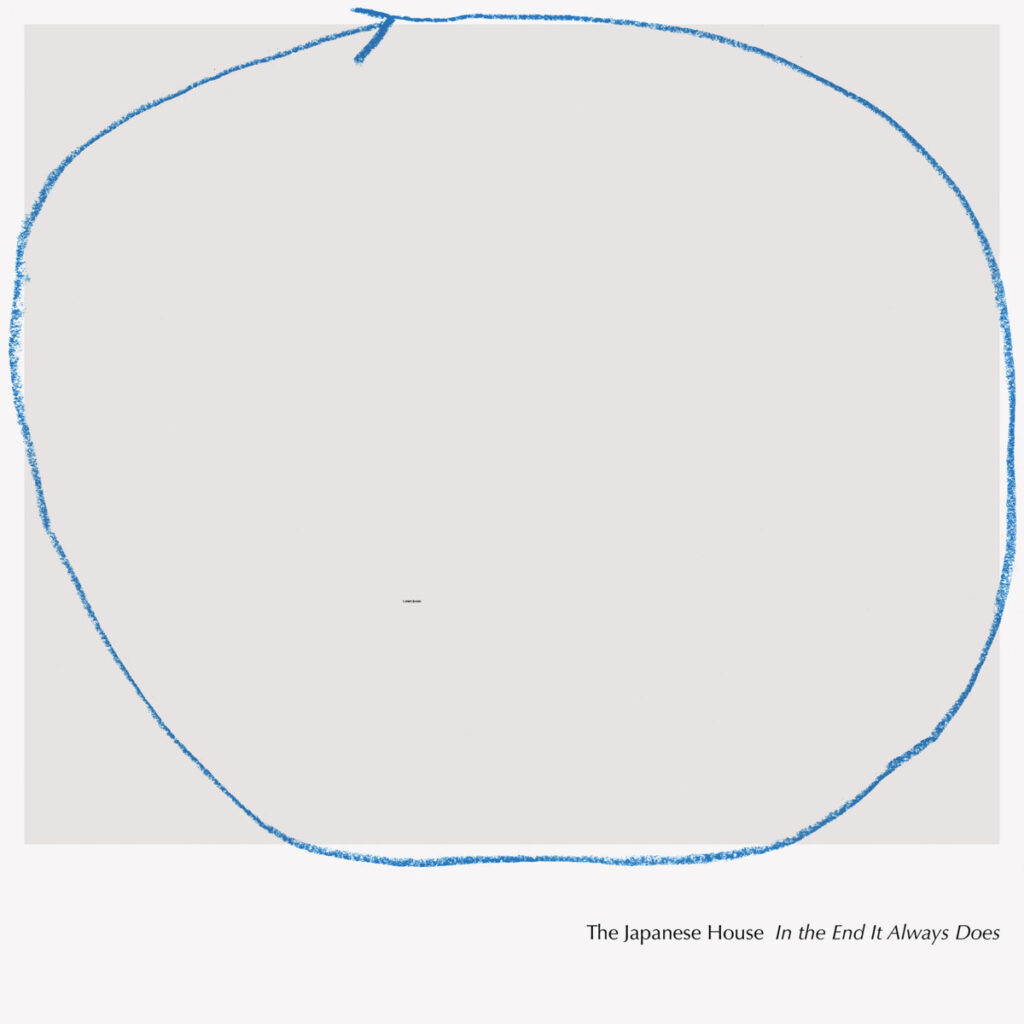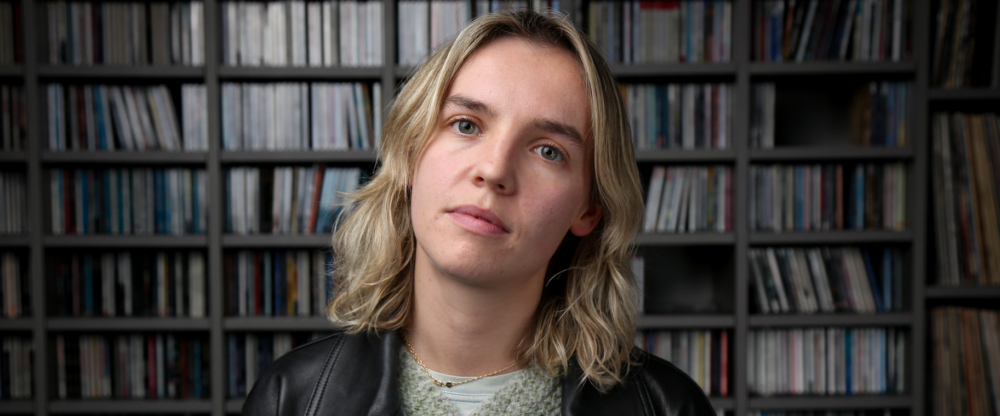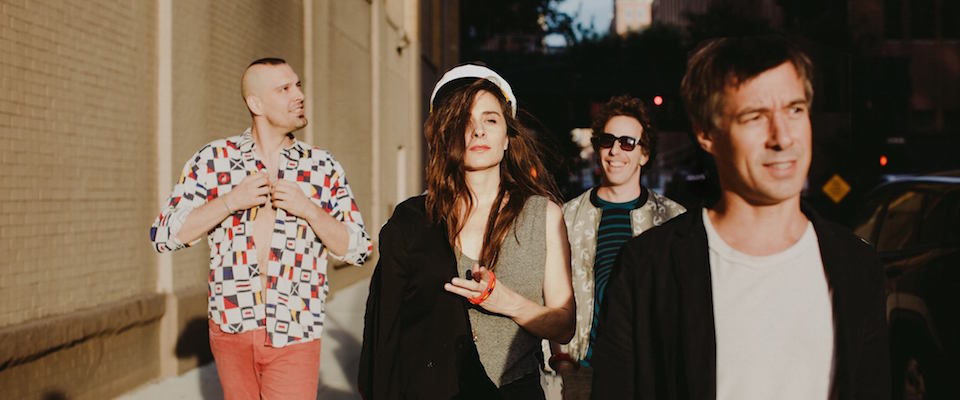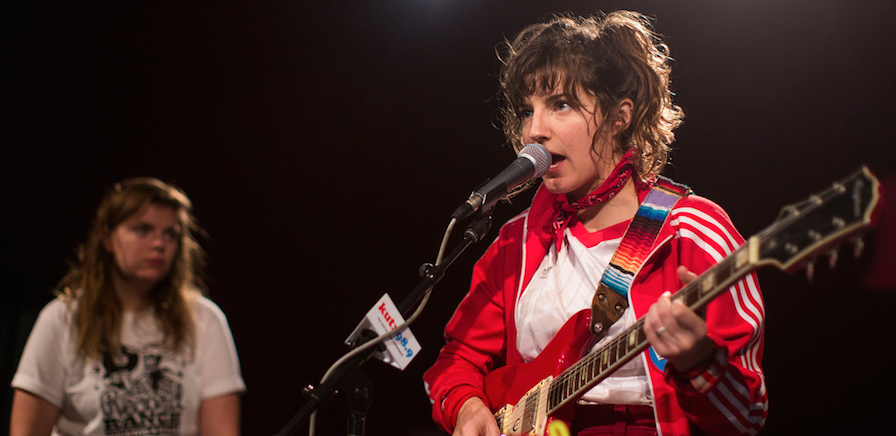Amber Bain’s In The End It Always Does is more than just a breakup album
By Jeff McCord
(Watch the full session with The Japanese House below)
When word got out that Amber Bain, the 28-year-old who records under the moniker of The Japanese House, was releasing a breakup record, I expected the usual – self-pity, and a set of songs that work better as therapy than as audience pleasers.
I couldn’t have been more wrong.

Her new album, In The End It Always Does, is not without its sad moments, but its power comes from the crafted songwriting and life-affirming subject matter. At times, it seems strangely celebratory.
Which explains why it has been so well-received. The latest Japanese House tour has been full of sellouts. As the equipment is being packed away from her Studio 1A performance to be whisked off to her show that night at Emo’s, she sits with me to discuss the record.
“It was interesting,” says Bain, “because when I was recording, I was not actually broken up just yet. The breakup happened simultaneously with the finishing of this record. For example, “Sunshine Baby”, I’d written the chorus, about acceptance and wanting to ignore the bad and embrace the good, sort of in that sense. But the verses, as I wrote them later on, they became – honestly, the song helped me realize that the relationship was over in a way. It was this strange juxtaposition of being creatively empowered and excited. [It] felt like I was back in life again. I moved back into a city. I was hanging around all my friends all the time. I could finally write songs again. But also, my life was ending as it was in terms of my relationship. And so I was in this weird space, in between those two quite extreme places.”
Honestly, the song helped me realize that the relationship was over in a way
Amber Bain on writing the song “Sunshine Baby”
Bain is quintessentially British, born in the small town of Buckinghamshire. Her father taught her music, and she was recording by age eleven. She speaks purposefully and methodically, maintaining an absolute even keel when discussing very emotional topics. I wonder aloud about writing such deeply personal material, then going through the recording process and playing the songs on tour each night. Are the same powerful emotions still being dredged up, or is her relationship to these songs constantly changing?
“Yeah, they change constantly. I find when you listen, you hear it through a different lens and it kind of enables you to hear it for the first time in a different way. Obviously, I can’t – it’s not sustainable to feel the same amount of emotion as the thing that caused you to write that song. But the essence of the song, definitely. I still feel that like when I’m performing every night, I still feel something. I’m not pining for my ex-girlfriend, but I’m feeling the rawness of human emotion and it makes you aware of how you felt in that time.”
Bain’s song “Boyhood” spells out the confusion and gender identity of her young years, and more than any track on In the End, it seems to be the one that has gripped the imagination of others. Why does she think that is true?
“I think it’s the song itself. That’s the last thing I did on this record was finish those lyrics and record those verses. I had the chorus, which is very like a vague ‘I could have been somebody else’. And I think that sentiment resonates with a lot of different people, whether it’s someone who’s experienced trauma in their childhood and feels like it affects them in a certain way, or someone who hasn’t been able to experience the childhood they wanted to because they weren’t assigned the right gender at birth, or someone that’s been gay and didn’t come out for until they were however old. What [would] their life would have looked like if they’d had the support? I think the song both laments that loss, but also celebrates what you’ve gained from that. You have to embrace all of that, you know. You have to take the good with the bad. Even before I really wrote the lyrics, that’s what the song was about. It was about doing the maths to make the lyrics fit into the essence of the song than the other way around.”
Bain offered her own kind of confusion with her 2015 debut EP, Pools To Bathe In. With no real information other than her moniker, fans were left to speculate about who the Japanese House really was, down to gender, due to her androgynous vocals. Bain claims this wasn’t purposeful.
“I just didn’t have any press photos and I think that if I was a guy, a man, and people wouldn’t be thinking, I’m so mysterious. I just didn’t use my own name. It wasn’t really that manufactured. I just hate having my photo taken. I think now I’m kind of perplexed when people think I’m trying to be mysterious because I’m like, I’m so open in interviews and my songs and my lyrics, like on the Internet, I’m open about pretty much everything.”
Bain has also been open about not liking some of her early material, which little resembles her new more crafted songwriting. I ask if she goes into each recording open-minded.
“Yeah, definitely. The music that I was making, my first EP, for example, was strange. People were like, What is this? And now I feel like it sounds quite normal. So what’s the point of doing the same thing again and again and again until everyone’s bored of it? I like to change. Naturally, my tastes change and I get really into different things. Right now I’m really into Celtic music and also dance music. Also, classic songwriting. My music used to rely a lot on cool production and cool sounds, whereas this album relies on the song. That’s why we can strip it back and it still sounds good. Imagine if we stripped back the first EP. I don’t know what it would be like. Nothing.”
For their Sudio 1A session, the Japanese House presented an acoustic session featuring Bain on piano, very different from their stage lineup. It took a long soundcheck to work it all out. But it’s indicative of the effort Bain applies to her music. She’s been on a long tour, and has brought up home (currently Detroit of all places, where she’s living with her girlfriend.) I can’t tell if she’s always this reserved, or maybe just a bit tired, homesick.
I ask if she enjoys touring.
“Yeah, I do. I do. Sometimes I find it hard. I don’t know. I’m on a bus. I don’t really get a lot of sleep, so I’m pretty much exhausted the whole time. But I do like it. Yeah, I do really like it. Yeah.”
And off she goes to play another sold-out show.
FOLLOW THE JAPANESE HOUSE
Set List:
“Sunshine Baby”
“Boyhood”
“One For Sorrow, Two For Joni Jones”
Musicians: Amber Bain – piano, vocals; Cicely Cotton – sax; Kamran Khan – guitar; Dominic Potts – bass, bgv
Credits:
Producer: Deidre Gott; Production Assistant: Confucius Jones; Audio Engineer: Jake Perlman; Audio Mix: Jake Perlman, Rene Chavez; Cameras: Ivy Fowler, Renee Dominguez, Nastassja Collak; Edit: Deborah Cannon; Host: Jody Denberg



